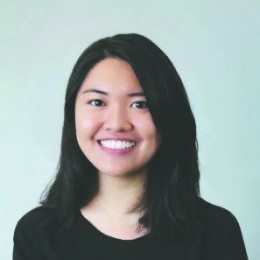
If you were ever told that senior year would be a breeze, you were misinformed. It’s a relative statement. But in my case, the schoolwork does not end, even though I’m finally studying abroad and preparing for my post-graduation job.
Still, my undergraduate experience has turned out to be everything I hoped it would. From the moment I transferred to Binghamton University, I knew that I wanted to create meaningful, lasting change. What I didn’t know was how to use my abilities to bring about this change, and what I should major in. I joined several volunteer organizations, which helped me narrow my interests to a single, but diverse field: education.
In my junior year, I decided to study sociology because it pushed me to ask often-overlooked questions and encouraged me to be more aware of my identity as an Asian-American female. I often wondered what it would have been like to grow up without the support structures I had, such as stable housing, healthcare, food and citizenship status. These were things the parents of the students I worked with struggled to obtain. The more I thought about my future, the more I realized the answer to what I should do was right in front of me. The most influential people in my life had been teachers — people who asked tough questions, rejected easy conclusions and pushed me to push myself. Why not follow in their path-changing footsteps?
Teaching is no easy feat. But when I think about what I’ve loved about life on campus and the life I hope to chart beyond it, I can’t help but think teaching might be exactly what I’m looking for: a community to care about, relationships that matter and an opportunity for impact. I’m motivated to teach because I believe that all students deserve a high-quality education regardless of their socioeconomic status. As the eldest child of two immigrant parents, I am a testament to the promise of the American education system. My desire to teach is compounded by the shortage of Asian-American teachers in America’s classrooms, despite Asian-Americans’ status as the fastest-growing racial group in the nation.
Outside of my studies, I was fortunate to spend a few hours every week mentoring Emily, a seventh grader at Johnson City Middle School. My time as a JC Mentor was a sharp contrast to the bubble of life on campus. During my time as her mentor, we charted her growth trajectory, which allowed her to gain self-confidence and raise her expectations for herself. Despite all the challenges Emily faced, inside and outside of the classroom, she was one of the brightest, boldest minds I had ever met.
When we help kids like Emily change the way they think about their own capabilities and futures, we create classrooms full of students who are dreaming big. When we equip them with the skills and tools to thrive in and out of the classroom, we cultivate kids whose potential is boundless. It won’t happen overnight. It will take sustained, thoughtful effort. I want to be a part of it.
For me, that will begin with Teach For America, where I’ll leverage a national network to make a local impact. If I love teaching as much as I think I might, I’ll keep at it. Wherever I go, I know that as I empower my students to break the cycle, I’ll become part of a better one.
I can’t wait for school to start.
Sylvia Lam is a senior majoring in sociology.


